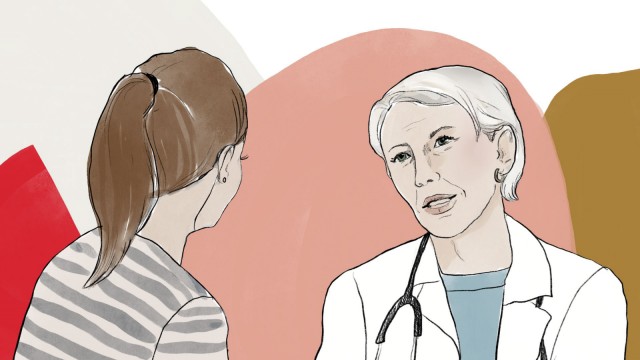Rape is not always classified as a medical emergency. Time and again, women who even dare to go to a clinic’s emergency room after a sexual assault are turned away. The city’s health department, seven Munich clinics and the women’s emergency hotline have joined forces to close a gap in care in the state capital – and to better inform affected women.
A publicity campaign is intended to help so that victims of sexual violence or their caregivers know exactly where they can turn and where emergency medical help can be guaranteed in Munich. The aim is to draw attention to this with flyers, postcards and posters. “We want the city society to know about it,” says health officer Beatrix Zurek (SPD). The “Acute Care After Rape” project was presented at the town hall on Monday.
The numbers are frightening. According to a study in Germany, one in seven women experiences criminally relevant sexual violence. According to Zurek, 300 rapes are recorded in Munich every year. The number of unreported cases is high. Not every woman talks about this terrible experience, not every woman reports rape. Because two thirds of the perpetrators come from the home environment.
“In 2022, across all experiences of violence, 50 percent of women only reported to us within six months,” says the managing director of the Women’s emergency hotline, Maike Bublitz. Around 300 affected people turn to the advice center every year. A team there helps, listens, supports people in dealing with the consequences of the rape and looks for solutions as to how things could continue. Everything is confidential and, if the woman wants it, anonymous.
Does anyone believe me? Many women who have been raped don’t want to talk about it – or don’t want to talk about it until months after the fact.
(Photo: Bureau Birgit Mayer)
Rape is so shameful, says Bublitz, and the barrier to talking about it is so great. Very often women also have the feeling that they are complicit. And she appeals to everyone in whom raped women confide: “Believe them when they say things like that.”
Women’s emergency hotline and equal opportunities office have repeatedly pointed out gaps in acute medical care. In 2019, applications from the SPD and the Greens in the city council to take up the issue followed. In 2020, the health department was commissioned to present a concept for acute care after rape. For example, in a working group with representatives from clinics, forensic medicine and the women’s emergency hotline, a standardized documentation form was developed for the clinics, which specifies exactly what needs to be asked for in acute care. And how. This helps the doctors in the clinics deal with the situation, says Zurek.

“I would like to speak to a specialist urgently”: This sentence signals, for example, in the emergency room at the Munich Clinic Harlaching that the woman urgently needs confidential help.
(Photo: Bureau Birgit Mayer)
Clinics and advice centers are now working more closely together and exchanging information. According to Zurek, doctors and medical staff from the seven clinics have also been trained to gain confidence in dealing with a woman seeking help in the emergency room because of a rape. “I would like to speak to a specialist urgently, please.” This sentence is, for example, a code in the emergency center of the Munich Clinic Harlaching. Any woman who tells him will receive immediate, confidential medical attention. “Rejections can no longer happen,” says managing director Bublitz. “Otherwise the women won’t come back.”
One is acute medical care, the other is confidential forensics, which is important in order to be able to locate the perpetrator later and support a complaint. The health department therefore finances forensic kits and supplies them to the clinics. In this way, “court-proof” findings can be made, as Bublitz says. And women don’t have to go to forensic medicine after being raped. They could also take their time and think carefully about whether they want to file a complaint or not. The traces will be secured for six months.
The campaign particularly wants to promote the fact that women have the courage to have the evidence secured within 72 hours. “It’s so important,” says Zurek. “Otherwise, despite a report, everything might come to nothing because there are no findings.” In the seven clinics, people are now trained to carry out first aid and forensics according to uniform guidelines and with confidence. With this, Zurek and Bublitz hope to get out of the high number of unreported cases.
The flyer lists the seven clinics as contact points: the Munich clinics in Harlaching, Neuperlach and Schwabing, the LMU clinics in the city center and in Großhadern, the TU clinic on the right side of the Isar and the Third Order clinic. It also contains information on how women can behave after sexual violence. Zurek and Bublitz agree that the more openly society deals with the topic of rape, the more rape is no longer a taboo subject, but rather a medical and psychological emergency.

